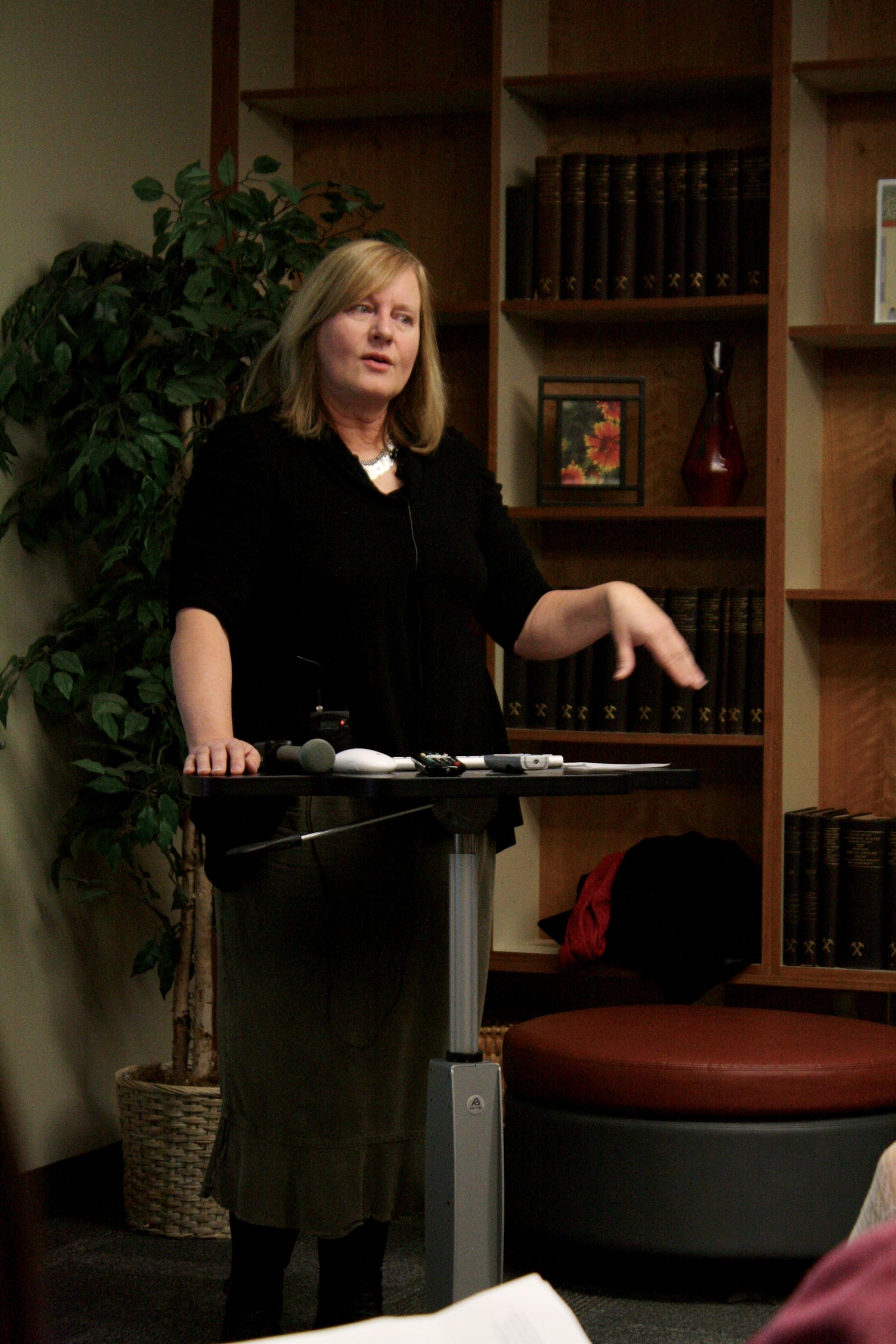Professor presents research on memory
There may be things people can do while they are young to avoid Alzheimer’s disease, according to a USU assistant professor’s presentation in the Merrill-Cazier Library on March 19.
The presentation was part of the USU Center for Women and Gender’s Brown Bag Lunch lecture series.
“These are events where the women faculty of USU can come and present their work,” said Melissa Keller, the USU Center for Women and Gender senior staff assistant.
According to the findings from Maria Norton’s study, “Cache County Study on Memory Health and Aging,” people who live in the Mountain West are at an even greater risk for developing Alzheimer’s.
“We that live in the Intermountain West. We live in the region of the country that has the highest projected and most rapid growth of Alzheimer’s cases,” Norton said. “Utah leads the Mountain West for Alzheimer’s.”
Alzheimer’s is a type of dementia that is thought to have two causes, Norton said. The peptide beta amyloid causes a build up between neurons, blocking messages the brain. Then the tau protein tangles the ends of neurons. The result is loss of brain tissue over time and symptoms ranging from memory loss and confusion to problems speaking.
“There’s surgeries. There’s insulation for diabetes. There’s chemotherapy for cancer. There are serotonin transporters for depression and mood disorders,” Norton said. “There’s all kinds of treatments and therapies out there that can either slow down or arrest these diseases. With Alzheimer’s disease, unfortunately, what we are facing to today is we don’t have a cure, and what we do have can only help with some of the symptoms.”
Most USU college students fit in the early stage of mental aging, but Norton said care still needs to be taken to lower risks for Alzheimer’s.
“That could be an 18- or 30-year-old person, but this person still needs to watch and think about what they can do to prevent Alzheimer’s disease,” Norton said.
Education, exercise, diet and certain medications can help lower one’s risk for Alzheimer’s disease, she said.
“Fruits, vegetables, low-fat dairy, lean meats, fish and whole grains, we found that people that ate this type of diet had significantly higher functioning at the beginning of our study and maintained it throughout our study,” Norton said.
Those who try new pursuits that increase brain actively, like learning new languages, were also found to lower their risk for Alzheimer’s, she said. However, exposure to pesticides, head injury, and psychological stress were found to increase the risk for Alzheimer’s.
“You can’t always prevent yourself from getting a car accident, but you can wear a helmet, and you can wear a seatbelt and you can drive defensively,” Norton said.
USU student Ashley Shields said the presentation was worth attending.
“She answered a lot of questions that I had,” Shields said. “Some of the stuff she talked about I think I’m already doing like exercise, but I didn’t even think about diet. The increase in Alzheimer’s makes sense because of the baby boomers and stuff. My parents and my husband’s parents are baby boomers, and that would definitely put a strain, having people you would have to take care of. It’s a hard disease. They are not themselves.”
– katherine.l.larsen@gmail.com

